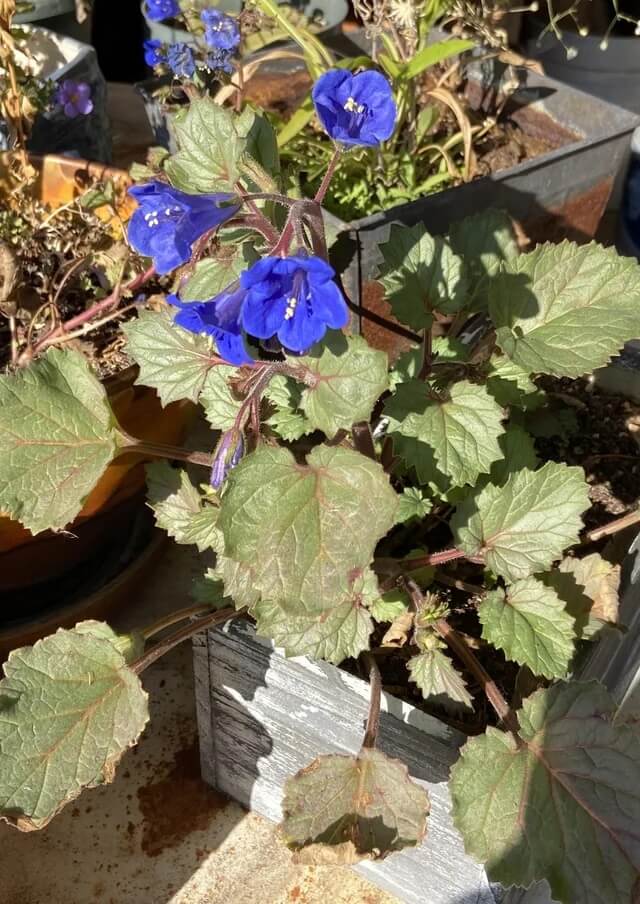Our overheating planet is making it difficult for native plants to thrive, and some gardeners wonder if they should start planting for a warmer world.
One gardener posed this question to the r/NativePlantGardening community on Reddit last winter, writing: "Is anyone planting to take into account the projected longer term change in your local climate? I currently live in USDA Zone 7b, but I'm thinking of trying some zone 8a or 8b natives from the region."
In their post, they also added a photo of a desert bluebell they'd planted in their garden, which had bloomed despite freezing temperatures. According to Gardening Know How, desert bluebells grow best in plant hardiness zones nine through ten, so it's unusual to see the plant native to California's deserts thriving in a different geographic area.

However, with the planet getting hotter, it's becoming more common to see plants growing in strange places. The most recent Plant Hardiness Zone Map released by the USDA in 2023 revealed that the U.S. map was about 2.5 degrees warmer than the 2012 edition.
Even though it's more challenging to grow plants in the changing climate, a native-plant lawn offers plenty of benefits.
For one, gardeners can save money and time on lawn maintenance, with an average annual savings of $275 on water, $50 on fertilizer, and $50 on pesticides and weed control. Since native plants have evolved with a particular region over thousands of years, they're adapted to the local climate and don't require as much water or fertilizers.
They also support local ecosystems, attracting pollinators like bees and butterflies to your garden. Many people have reaped the benefits of replacing even part of their yard with low-maintenance plants like clover and buffalo grass.
The Reddit post's comments offered helpful advice for the OP.
One user agreed with them, writing, "Yes … It's actually a thing called 'Assisted Migration.'"
Another who worked in restoration ecology was all for having a diverse garden and sharing seeds with others: "Be smart. Study ranges. Avoid foreign species. Plant for your immediate region first and think about planting for resiliency of species," they said.
TCD Picks » Upway Spotlight

The OP thanked everyone for their thoughtful responses and shared their experience planting Great Basin natives: "Years ago, I gathered some seeds from a yucca growing in the Canyonlands area and it's been very successful," they wrote. "But the flowers don't get pollinated. I've never had seed from it. I think it's too far north for whatever moth species that normally pollinates it."
Join our free newsletter for easy tips to save more, waste less, and help yourself while helping the planet.














